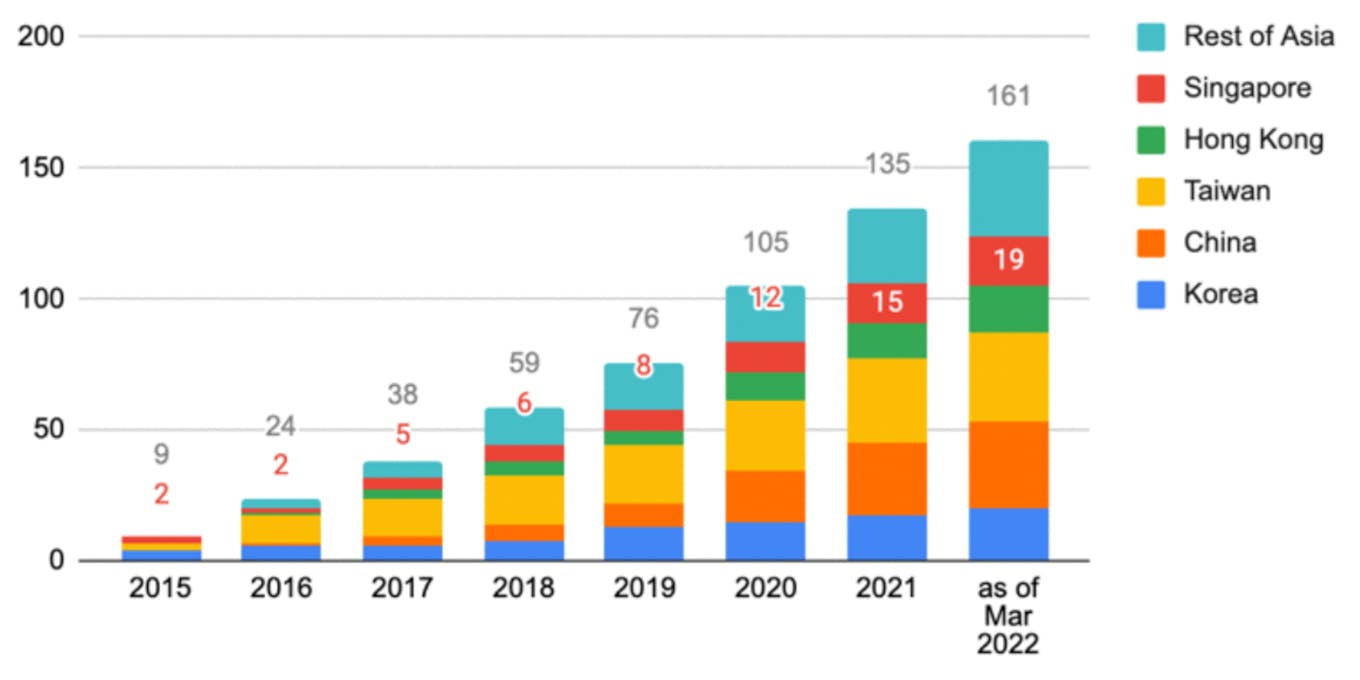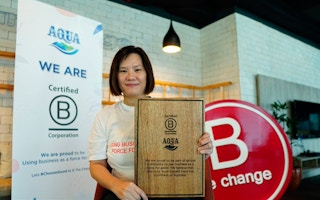Interest in B Corp certification has surged in Asia since the start of the year, with a record number of companies in the region achieving B Corp status in the first quarter of 2022.
B Corp—short for beneficial corporation—was founded in the United States in 2006 and is one of the most challenging sustainability certifications to attain. Firms must meet comprehensive standards for environmental and social sustainability, transparency, and inclusion. The relatively high cost of certification — which costs between US$500 and US$50,000 a year — and stringest requirements are a natural filter that favour businesses committed to sustainability.
The number of B Corps in Asia reached 161 in March, eclipsing last year’s full-year tally of certifications.
Taiwan — the first Asian market to establish a national B Lab, the non-profit that manages B Corp certifications — and China, are the biggest Asian markets for B Corps.
South Korea, Singapore and Hong Kong are also building sizeable communities of certified businesses, with a smaller showing from India, Indonesia, Malaysia, and Japan.

B Corp market growth in Asia from 2015 to March 2022. Source: B Lab Singapore
The increase in Asian B Corps mirrors global growth in certifications. In 2021, the total number of B Corps worldwide was 4,427, an 18 per cent increase on 2020. A further 521 businesses have been certified so far this year, taking the total to 4,948 B Corps in 79 countries across 154 industries.
The rise in B Corp certification has coincided with a growing recognition of environmental, social and governance (ESG) issues in the wake of the Covid-19 pandemic. The past few years have also seen a surge in demand for sustainability consulting services, driven by regulatory change and pressure on firms to re-engineer their businesses around sustainability.
Caroline Seow, co-founder of B Lab Singapore, which launched earlier this year, said that the pandemic has meant that “companies are facing tectonic shifts in expectations from all stakeholders, and there is widespread consensus that a return to ‘business as usual’ is untenable.”
“Corporations must deliver for all stakeholders, environmentally destructive investment patterns must be avoided, and businesses must be held accountable for the externalities that they generate,” she said.
Jacqui Hocking, chief executive of Singapore-based B Corp-certified production company Vision Strategy Storytelling, said that the rise in environmentally and socially conscious businesses in Asia is not new, but more companies are ready to hit the stringent requirements and be certified.
“There’s been a lot more pressure on businesses to get certified because of the boom in the ESG movement, and also the glut of greenwashing,” said Hocking, who is a B Corp ambassador for Southeast Asia.
“Companies doing good want to differentiate from the companies that are just talking a good game. B Corp is a good way to do that,” she told Eco-Business.
With only 19 of the 400,000 registered businesses in Singapore achieving the certificate, some question the potential of B Corp to meaningfully change the business landscape, and observe that mainly smaller businesses that are already ESG-inclined get certified. Advocates argue that the momentum is with ESG-conscious businesses.
“There’s a big and growing community of people who believe in B Corp [in Asia], because business is the biggest tool we have to impact change,” said Hocking.

















